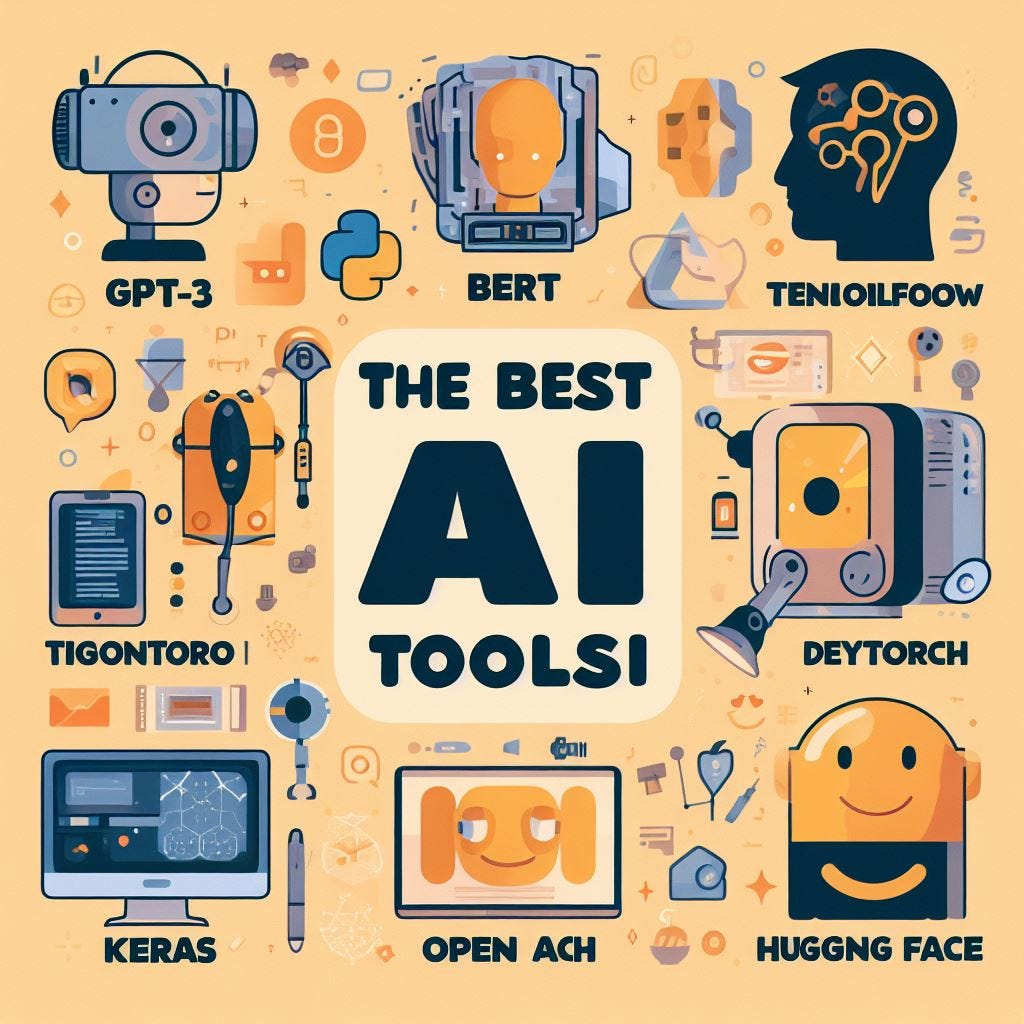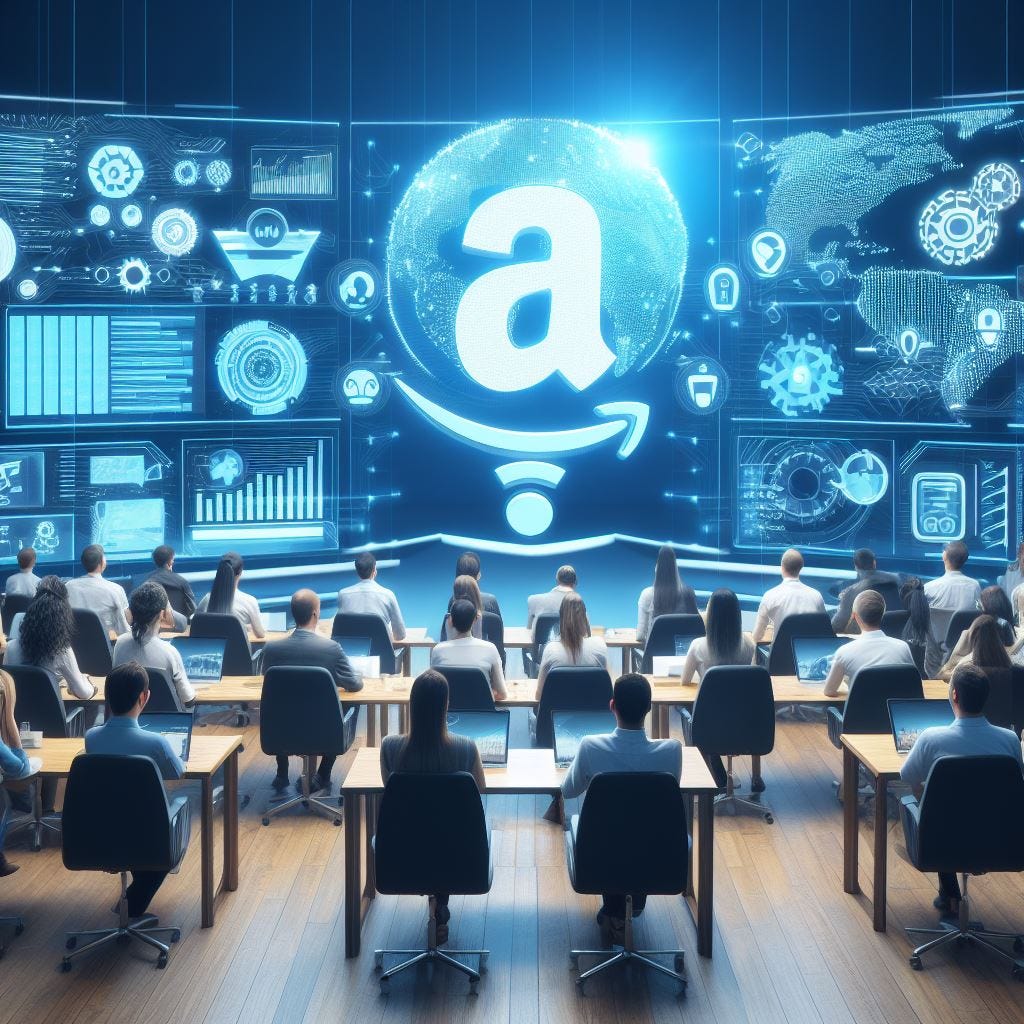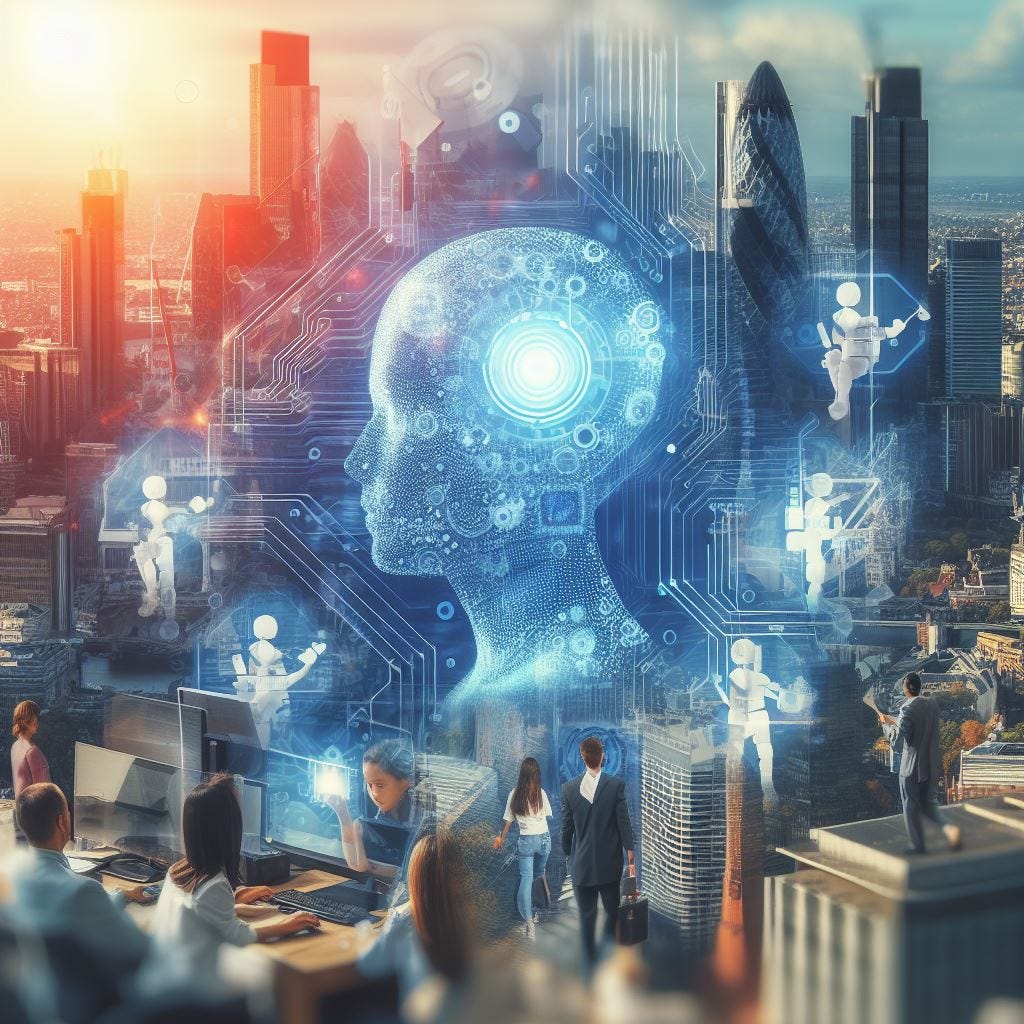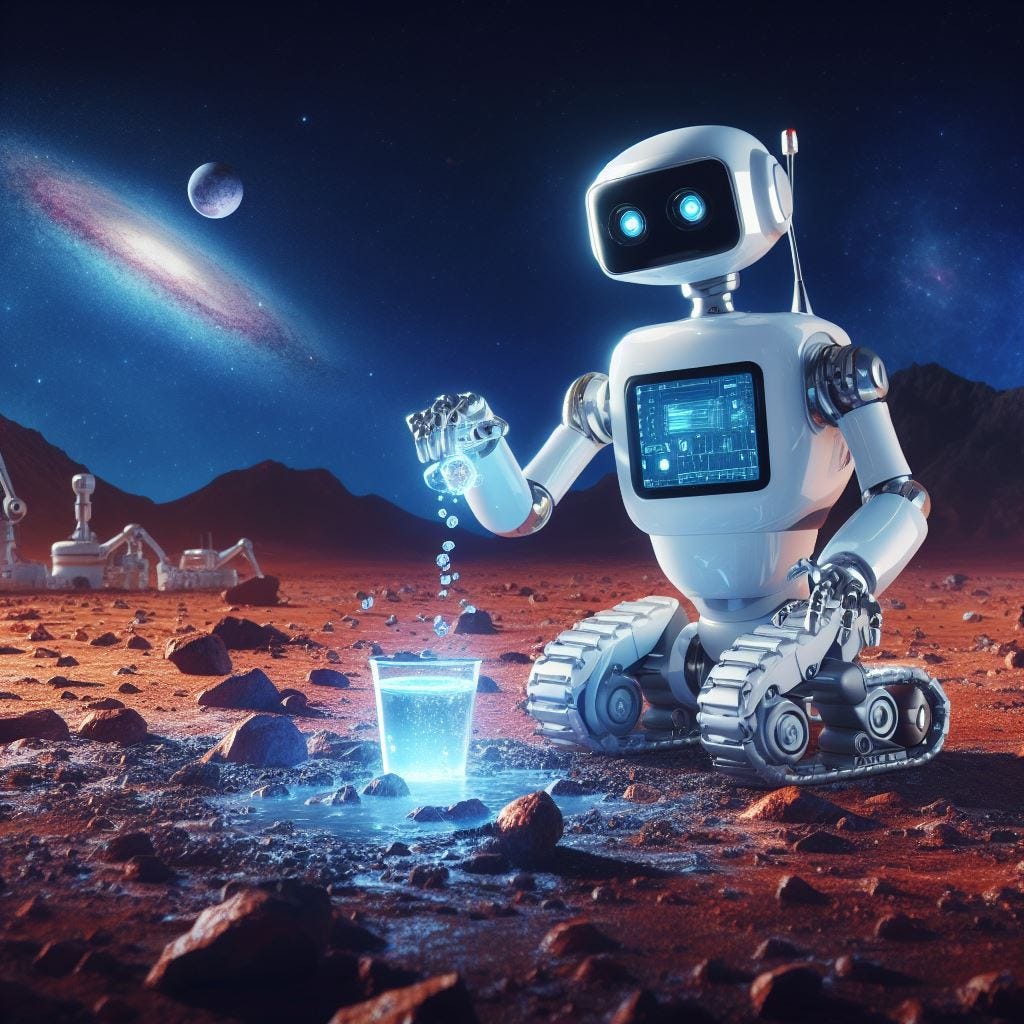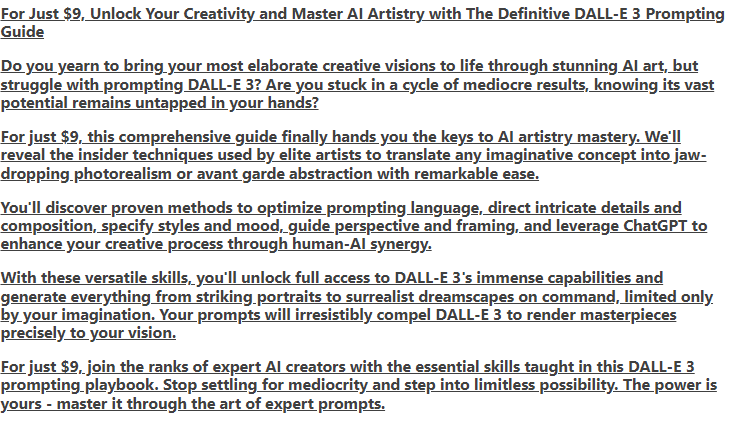Amazon Leads $12M Investment in AI Training as Study Shows London Work Week Could be Cut to 4 Days by 2033 Through AI Gains
Amazon Takes Lead in Upskilling Workers for AI Age with $12M Investment as Skills Demand Surges
Amazon AI Training Initiative
- Amazon announced "AI Ready" initiative to provide free AI skills training to 2 million people by 2025
- Addressing strong employer demand for AI talent shown in new AWS study
- Workers with AI skills can earn up to 47% more in salaries
- Launched 8 new free courses on AI and generative AI for various audiences
- Providing over $12 million in AWS/Udacity scholarships for 50,000+ students
- Partnered with Code.org on new "Hour of Code" focused on generative AI
- Builds on Amazon's commitment to provide free cloud computing skills training to 29 million by 2025
AI Enabling 4-Day Week in London
- Report by Autonomy estimates AI could enable 4-day week for many Londoners by 2033
- Identified 18 "four-day week boroughs" where 1/3+ workforce could benefit
- London's high concentration of white-collar roles ripe for AI productivity gains
- Estimates 1.5 million London workers could get 20% hour reduction through AI
- Sees AI as way to spread 4-day week if implemented responsibly
- Impact will vary greatly by occupation type
6 OF THE BEST AI TOOLS
HEADLIME IS THE GO-TO GPT-3 TOOL FOR MARKETERS.
WRITESONIC IS ONE OF THE BEST ARTIFICIAL INTELLIGENCE-POWERED COPYWRITING GPT-3 TOOLS.
Unleash Your Creativity with These 10+ Amazing Free AI Art, Music, and Video Tools
Transform Photos and Videos into 3D Scenes, Generate Original Music, and More with Cutting-Edge AI
AI Oxygen Production on Mars
- Chinese researchers developed AI robot to produce oxygen from water on Mars
- Could provide future astronauts oxygen without transporting from Earth
- Robot analyzes meteorites to identify catalysts to split water
- System accomplished in 2 months what would take human chemist 2,000 years
- Produced catalysts successfully generated oxygen in tests
- Aims to test system further under range of Martian conditions
- Sees potential for AI chemist to produce catalysts for other uses like food crops
Amazon Launches Initiative to Provide Free AI Skills Training to 2 Million People by 2025
Amazon recently announced a new initiative called "AI Ready" that aims to provide free artificial intelligence (AI) skills training and education to 2 million people globally by 2025. This will help address the strong demand for AI talent, with a new AWS study finding employers expect workers with AI skills to earn up to 47% more.
To meet the 2 million training goal, Amazon is launching new courses and expanding existing programs focused on AI and generative AI. This includes 8 new free courses covering introductory to advanced topics for both business and technical audiences. For professionals, there are courses on generative AI basics, prompt engineering, low-code machine learning, building language models, Amazon Transcribe, and more.
Additionally, Amazon is providing over $12 million in scholarships through AWS and Udacity to give over 50,000 students from underserved communities access to a new introductory generative AI course. Students who complete the course receive a certificate to showcase their skills.
For younger students, Amazon is collaborating with Code.org on a new "Hour of Code" activity focused on coding virtual dancers and using AI to generate animated backgrounds. This provides a fun, accessible introduction to AI concepts.
Amazon is also continuing its commitment to provide free cloud computing skills training to 29 million people by 2025, with over 21 million already trained. The new AI Ready initiative builds on this effort by focusing specifically on expanding access to AI and generative AI education.
Overall, Amazon aims to democratize AI education and training through free courses, scholarships for underrepresented groups, collaborations with education providers, and large-scale cloud skills training programs. By removing barriers like cost and expanding reach globally, Amazon hopes to prepare a diverse workforce for the growing role of AI across all industries.
New Study: AI Could Enable 4-Day Work Week for Hundreds of Thousands in London by 2033
A new report by the Autonomy campaign group suggests that artificial intelligence (AI) could enable hundreds of thousands of Londoners to move to a 4-day work week by 2033 without losing pay. The study identified 18 "four-day week London boroughs" where at least a third of the workforce could benefit from AI-driven productivity gains.
The report argues London and surrounding commuter areas are primed for AI adoption and reduced work weeks given the high concentration of white-collar office jobs. The City of London was singled out as the only area where a majority could get a 4-day week within a decade due to AI. Other London boroughs like Kensington, Westminster, and Islington were also highlighted.
Outside London, the report named areas like Elmbridge, St Albans, and Wokingham as places where AI could substantially reshape work. The impact will depend on job type. Roles like lawyers, accountants, financial services, management, and administration were cited by the IMF as susceptible to productivity gains from AI like large language models.
In total, the report estimates 1.5 million London workers could see a 20% reduction in hours without less pay by 2033 if AI delivers 20% productivity improvements. Nationwide, 9 million British workers could move to a 32 hour, 4-day week. The report laid out scenarios for how many could get either a 20% or 10% hour reduction through AI while maintaining pay.
The researchers see reduced working hours as a tangible way to ensure AI benefits workers and companies alike. If implemented fairly, they believe AI can usher in a new era of 4-day weeks. Critics counter AI could also displace many jobs and increase unemployment if not managed carefully.
Overall, the report aims to provide a different perspective on AI, seeing it as a potential path to widespread adoption of a 4-day week rather than a job killer. But it acknowledges the technology must be developed responsibly to spread benefits widely. The impact will vary greatly by region and occupation.
AI Robot Learns to Produce Oxygen from Martian Water, Enabling Future Settlement
Chinese researchers have developed an artificial intelligence (AI) robot that can produce oxygen from water on Mars, according to a new study. The system could provide a way for future astronauts to generate much-needed oxygen from the Red Planet's ample water supplies.
The robot was designed by scientists at the University of Science and Technology of China. It uses materials found on Mars, like those in meteorites originating from the planet, to produce catalysts that can split water into oxygen and hydrogen.
In experiments, the AI robot first analyzed meteorite samples and identified metallic elements like iron, nickel and magnesium. It then predicted molecule combinations that could effectively catalyze water. The chosen catalyst was able to operate at Mars temperatures.
The researchers say the automated system accomplished in two months what would take a human chemist 2,000 years to do manually. In tests, the robot-produced catalysts successfully generated oxygen by splitting water molecules.
The lead author imagines this system could one day enable humans to live on Mars without transporting oxygen from Earth. He estimates each square meter of Martian soil could produce around 60 grams of oxygen per hour with their method.
Next steps are to test the robot under more Martian environmental conditions beyond just temperature. The team also sees potential for the AI chemist to produce catalysts for other uses, like growing food crops.
Overall, the Martian water-splitting robot demonstrates how AI and automation can aid future Mars exploration and settlement. By scavenging local resources, the system could save costs and logistical needs for life support and fuel production. If proven robust, it would move humans closer to sustainable stays on the Red Planet.
OpenAI Employees Revolt, Demand Board Resignation After CEO Sam Altman Firing
Here is a 297 word summary of the key points:
Staff at artificial intelligence firm OpenAI are demanding the board resign after the surprise firing of CEO Sam Altman last week. Over 650 employees signed a letter questioning the board's competence and accusing them of undermining OpenAI's mission.
Altman, a leading AI figure, was dismissed Friday with the board citing a lack of candor. This shocked the tech industry given his stature and OpenAI's rising prominence behind products like ChatGPT.
In the letter, staff threatened to resign themselves if demands for the board's ouster and Altman's reinstatement aren't met. They noted Microsoft offered jobs should they leave. Signatories included OpenAI's chief scientist, though he admitted regretting not opposing the firing.
The chaotic events took another turn as Altman was hired by Microsoft, a key OpenAI backer. Microsoft CEO Satya Nadella announced Altman will lead a new advanced AI research team there.
Former Twitch CEO Emmett Shear has been named OpenAI's interim chief. Despite his new role, Shear called Altman's firing "handled very badly" and said it "seriously damaged our trust."
While the specific disputes behind Altman's removal remain unclear, Shear denied it was over safety concerns. This suggests risks of AI weren't the issue despite speculation.
The saga reflects poorly on OpenAI, analysts say. But Microsoft emerges strengthened by hiring Altman and gaining leverage, furthering its prominent AI ambitions.
Overall, the staff backlash highlights internal turmoil at OpenAI around Altman's ouster. The employees' demands illustrate his standing despite board issues. With Shear now temporarily at the helm, he will likely need to rebuild trust.





